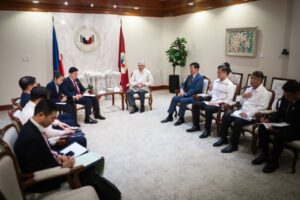The Marcos Administration has committed to sustaining annual spending on infrastructure at around 5 to 6 percent of gross domestic product (GDP) from 2023 to 2028, equivalent to approximately USD20-40 billion per year.
The announcement was made by National Economic and Development Authority (NEDA) Secretary Arsenio M. Balisacan, further to President Ferdinand R. Marcos Jr.’s instruction to the economic managers to pursue Public-Private Partnerships (PPPs) as a means of financing the development of critical infrastructure in the country.
“The President has given the directive to promote PPPs as a mode of financing these infrastructure flagship projects (IFPs) and other high-impact projects in physical, digital, and social infrastructure. These include investments for transport and road projects, property development, health, water and sanitation, ICT, solid waste management, energy, and tourism,” Balisacan said.
During the fourth meeting of the NEDA Board, the government approved 194 IFPs worth approximately USD148 billion or PHP8.3 trillion. Most of these projects focus on enhancing physical and digital connectivity, as well as managing water resources. More than half of the projects will be funded through Official Development Assistance (ODA), while 30 percent will be financed through PPPs.
Balisacan said these projects will enable the government to achieve its goal of addressing both short-term challenges and long-term constraints to job creation and poverty reduction. These projects are aligned with the Philippine Development Plan 2023-2028, which underscored the importance of infrastructure in addressing the obstacles to business investment and the creation of high-quality jobs.
Furthermore, the NEDA chief encouraged the business sector to finance these projects by highlighting the advantages of investing in the Philippines. He emphasized that the Philippines’ vast consumer base of 110 million people and its country’s demographic dividend are crucial factors to consider when investing.
Balisacan also noted that the country has been included in the Regional Comprehensive Economic Partnership (RCEP), which is the world’s largest free trade agreement. This agreement enables businesses access to more sources of inputs, thereby promoting economic growth.
During the Philippine Economic Briefing in Singapore on June 15, 2023, Balisacan emphasized the importance of funding and investing in the 194 ‘Build-Better-More’ Infrastructure Flagship Projects (IFP) of the Marcos Administration. He further encouraged businessmen to become invaluable partners in achieving development goals.
“The private sector is the Philippines’ engine of growth and innovation, and tapping into its financial muscle, as well as technical and managerial capacities will ultimately result in better public services, lower consumer prices, and improved quality of life for all Filipinos,” Balisacan added.


